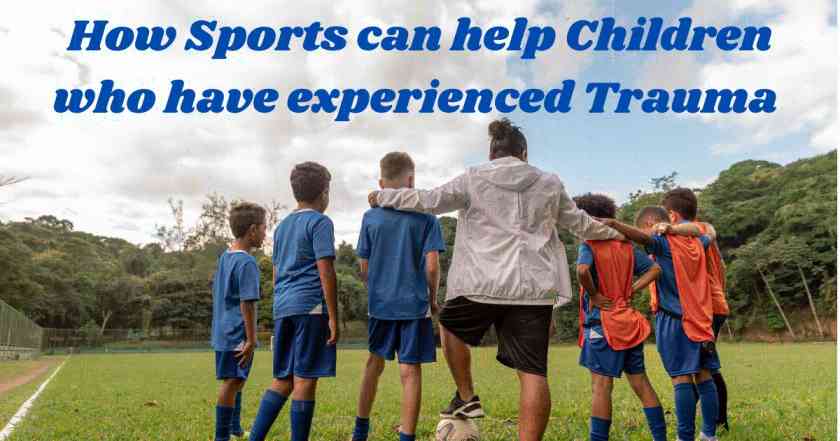Trauma can present itself in a variety of ways and leave a significant impact on those who have been affected. The topic of trauma can be incredibly sensitive and difficult to discuss, but many people find coping mechanisms to help them deal with such negative experiences.
Studies have shown that partaking in sports can protect those children who have been abused or neglected from developing mental health conditions later down the line. In this article, we’ll be exploring how sports can help children who have experienced some type of trauma in their lives.
Emotional and Behavioural Challenges
Children who suffer violence, abuse, or other types of trauma are more likely to become seriously ill in adult life. There are several emotional and behavioural challenges that children may face as a result of their experienced trauma, which includes but is not limited to:
- Anxiety
- Feelings of guilt and shame
- Anger, irritability and mood swings
- Feelings of disconnect and numbness
- Insomnia and/or nightmares
- Difficulty concentrating
- Fatigue
- Being startled easily
These challenges should be tackled as early as possible to prevent long-term health effects. Failure to do so will only prolong these issues, meaning you’ll likely struggle to overcome them in the future.
Building Resilience
Encouraging children to play sports can have a hugely beneficial impact on their mental wellbeing. This form of physical activity can serve as a therapeutic outlet for children who are dealing with/have dealt with trauma.
Sports can help build and strengthen resilience. It can encourage you to become willing and open to new experiences and training techniques, improving perseverance when losing games. Having positive thoughts towards your sport can contribute to feelings of motivation and willingness to succeed.
Stress Reduction and Emotional Regulation
Engaging in sports activities can help you manage stress. Physical exercise causes the body to release endorphins, which refer to the chemicals in your brain that relieve stress and pain. These can also reduce stress hormone levels, cortisol and adrenaline.
Putting your efforts into a sport can cause you to put aside any worries and concerns and concentrate on the task at hand. It can help to clear your mind and allow feelings of calmness.
Empowerment and Self-esteem
Sport can help children develop a healthy mindset. Playing as part of a team surrounds you with continuous encouragement and support from your peers.
As you continue to train and develop your strength and skills, you’ll naturally gain confidence in your abilities. This confidence stems from the visible improvements you’ll observe in yourself over time. You’ll receive exposure to lots of positive reinforcement, making you feel good about yourself with strong feelings of empowerment.
Team Sports and Camaraderie
Joining a sports team has many social benefits. It provides you the opportunity to build friendships and feel a sense of belonging. It’s particularly good for those who suffer from feelings of loneliness and isolation, as partaking in team sports can reduce this massively.
Whatever trauma you’ve experienced, it’s important to remember that you’re not alone. If you have experienced domestic abuse, you could consider seeking the help of a specialist domestic abuse solicitor, who can handle your case with professionalism and care. Having expert guidance and support can give you the reassurance you need to carry on with your life.








